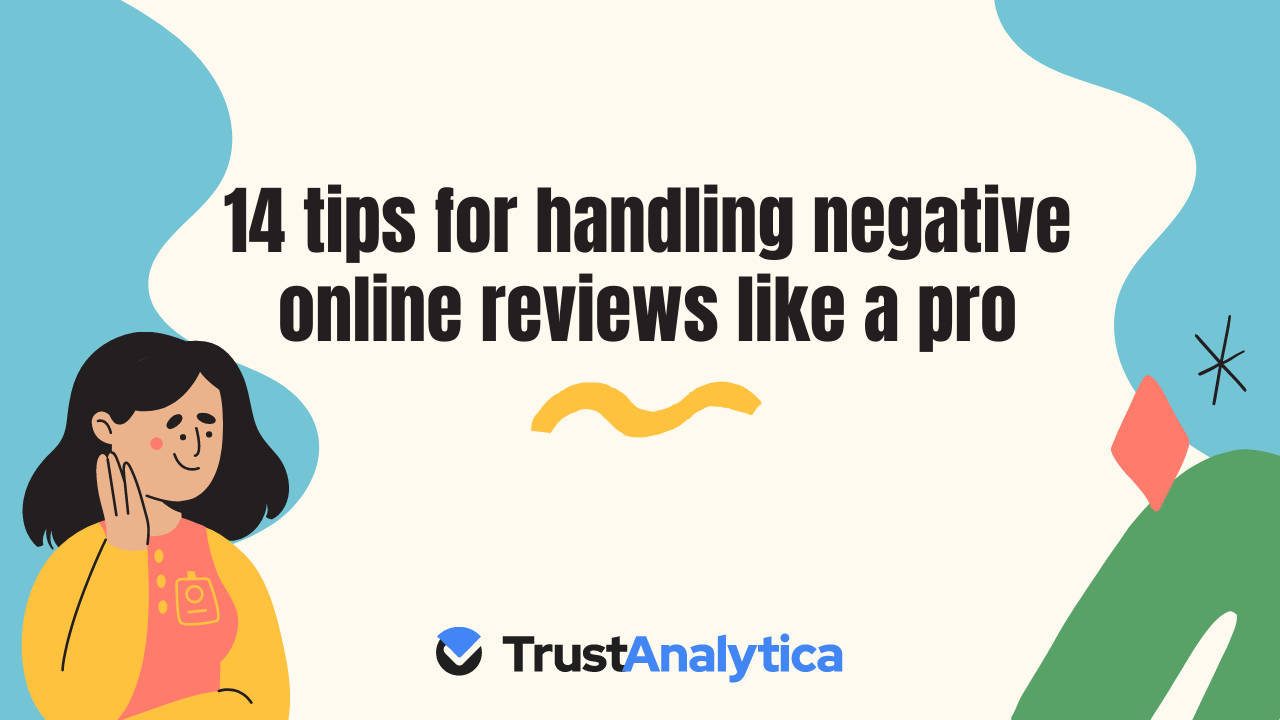With the rise in online businesses and e-commerce stores, businesses are clawing for the same market pie, even with the rise in the number of sellers. There was a time when it was comparatively easier to improve the odds of discovery and selling. Today, there are just too many variables that fluctuate within a small […]

With the rise in online businesses and e-commerce stores, businesses are clawing for the same market pie, even with the rise in the number of sellers. There was a time when it was comparatively easier to improve the odds of discovery and selling. Today, there are just too many variables that fluctuate within a small time frame. This includes SERPs, social media presence and engagement, and so on.
One need is clearer and more relevant than ever – online reputation management or to know how online reputation management works!
The idea entails that both individuals and brands need to maintain a good name for them to stay in the good books of online users – potentially everyone these days.
Another thing that marketers and brand reputation managers must keep in mind is that it is not all about just monitoring the uptick or downtick of chatter regarding a brand or person online. The role transcends these limits and embraces guidance across the web.
The internet is ubiquitous and unlimited and requires almost unlimited resources to be guided and monitored if only manual labor is considered. Since companies never have “unlimited” resources to spare, developers have created tools and software that make the task easier and quicker.
A typical brand reputation tool scraps data from across the web and processes the data to determine the results. In addition to this basic task, this software is also capable of doing much more, as almost every software comes with a dedicated dashboard.
Any reputation management software is considered to be white label if it is created with no branding on its code and front-end. This software or tool is then sold or rented to other businesses, such as digital marketing agencies, where they customize it according to the requirements of their clients. So, one of the types of online reputation management where services and tools move across the market with little customization is termed white label reputation management.
In the customization process, the intermediary in the chain adds their branding and then sells it or rents that tool as their own. There is no way for end-users to know that that specific piece of tool or software was not developed by that company.
This is what makes white label reputation management efficient and cost-effective as it takes minimal work for intermediary companies to tweak and optimize tools according to the needs of their customers and clients.
As covered in the previous section, white label reputation management software or services are the kind of entities that are developed by one brand and relabeled and sold by another. As the terminology would work, the company that designs and creates the product or service is called “white label” whereas the one that rebrands and sells it is simply called a “reseller”.
For instance, if your company gets software from TrustAnalytica and then sells it to your clients after customizing it to meet their demands, you can set your margins and get two benefits from a single solution.
One of the main USPs of white label solutions is that they allow companies to cast a wider net and get as many diverse clients as they want. Since they do not have to do the heavy lifting of prototyping, testing, developing, and dispatching software from scratch.
While banking on your online reputation while label sellers can earn more without having any sacrifices in the process.
When it comes to determining the true value of white label reputation management, it has benefits for both the brand and its clients. Since you are sure that your customers’ identity and stakes are safe, you can preserve their trust and support.
Perhaps the most important aspect of this model is that you can always deliver better value to clients and keep on improving your products or services. There is no hassle to manage multiple teams as all the heavy lifting will be done by core technicians. In addition to this, you can be on top of the developments happening in the online world and are in a better position to tackle any threat in the initial phases.
Businesses are always looking for a competitive edge against their competitors and this is the one for you. Studies have shown that companies that are selling only a single or a handful of products or services that cater to some of the areas of business might lose clients. It is because users need more dependence on sellers for all aspects of their work. This makes diversity a need, not a choice, and white label reputation management services offer a simple yet effective path.
Since the relations among intermediary users and end-users are evolving in a small window of time, there is always a need to define “who” can do “what” and to “what” extent.
As for the selling or reselling of the software or tools, there exists a clear indication of who can do that to whom.
Any company that deals with software and services in the B2B domain can sell or rent white label reputation management tool(s). Again, the major benefit of going this route is that it offers a new avenue for businesses to generate revenue and ensure maximum client satisfaction.
Following are the typical sellers or providers in this market:
This shows that any business that can be involved in any sort of software development or dealing can take advantage of this market.
Who needs personal reputation management services?
This is a big question for both individuals and companies who want to not only monitor the online chatter but also direct that to their advantage. This is where a solid service provider can come in handy.
They can not only provide positive reinforcements for all types of online reputation management but also avert or minimize personal reputation damage.
Following are some pro tips that can help companies or individuals in choosing exceptional personal online reputation management tools:
These days, almost every productivity or organizational tool comes with a dedicated dashboard. The top benefit of having a singular portal is having access to all major indicators from a unified interface.
This is one of the most important things that businesses and individuals must look at in their prospective tools before signing up for the services.
Since multiple platforms make it unnecessarily complicated, it pays to have a dedicated portal to monitor, analyze, and access various data streams.
Any online reputation management tool has to store and analyze a large proportion of data to get quantifiable results. With more data, it is natural for data handling and manipulation to become a hassle in the same software.
That’s where multipurpose practicality should play a vital role. A dashboard can take care of it all, but there must be other options in place to strengthen it.
These days, many companies and individuals need control at the API level so they can make changes in the code. This makes integration a breeze as they can have one master dashboard to control everything.
This is one of the things that ensure maximum client satisfaction at all levels.
The basic purpose of having the best personal online reputation management tool is to have complete control over the monitoring and guidance process.
Depending on the kind of business and the potential clients they are hoping to convert, users of online reputation management tools should be able to;
In addition to this, the software should enable customers to generate positive reviews and overall traffic while remaining in the same software. The reviews can include both first-party and third-party reviews, including Google Reviews.
In terms of dealing with reviews to manage online brand reputation, it is necessary to be on top of things because timing is everything. Marketers who want to have maximum control over things can take advantage of prompt notifications.
In case they don’t get a notification promptly, poor reviews can damage the brand’s reputation.
Organized and comprehensive reports are some of the most important insights that marketers can use in their analysis. There is no overstatement in saying that clients abhor duplicate data, disorganized reviews, and other forms of information that do not serve any purpose.
That’s why companies and individuals must choose a brand reputation tool that imparts comprehensive and to-the-point data reports with clear actions.
Even though many posts lump both individual and brand reputation management in one basket, they are quite different, based on their needs and demands. With the rise in platforms and users in the social media domain, individuals need to be proactive in this regard.
Here are some tips in individual brand reputation management that will come in handy:
Now, let us take a look at each of the tips in detail:
With around 5 billion active users worldwide, social media platforms have become a goldmine for individuals to create and grow their brands. It starts with creating and claiming profiles and then building from the ground up.
Make sure to fill all the relevant and applicable sections such as “Bio”, “Summary”, and other fields. This allows users to connect with the brand at a much more personal level.
Even with the rise of “micro-blogging” sites and platforms, the significance of good old-fashioned blogging hasn’t eclipsed. Depending on the field and intent of the brand reputation building can do wonders.
As a visitor, we often come across many platforms that offer world-class content and we follow them, as long as they keep producing. This is a golden rule.
It does not matter how much, as a brand, your customer, and online visitors value you, you need to keep on producing and uploading content.
The best way to make sure you are not lagging behind your competitors is by scheduling content. This helps to conduct research and track progress for the foreseeable future.
Comments and reviews are one of the major players in deciding a brand’s reputation online. Every media outlet that allows comments and reviews should be dealt with extra care. These portals are the best in terms of either making or breaking a brand’s name and reputation.
Here are some solid tips to streamline comment handling strategy:
Websites are rife with old media that often do not serve any purpose. There is precious web estate that is covered with “dead projects”. If you can re-purpose or re-define old media, it is much better to delete it.
Anyways, it is necessary to audit all platforms and take care of old, irrelevant, or negative media.
Credibility is everything when it comes to online brand reputation and management. Users turn into paying clients when they find true value in content by the companies and individuals. That’s why it is best to devise a strict fact-checking regimen to stick to before uploading content.
This point is especially important for individuals who want to set themselves as leaders in their relevant industries.
Cyber security is tightening up over time, still, the idea of having solid privacy is never out of fashion. An individual who is concerned with online reputation management should have solid privacy settings and infrastructure in place to fend off virtual attacks.
Customized settings to virtually detach from personal acquaintances is another great idea to cement privacy while remaining fully functional.
After going through all the details and tips to nail down the best reputation management tools, here are some brands that are riding the high tide in this regard:
These are some of the picks that help clients in monitoring and analyzing online traffic in terms of brand online reputation.
If the brand name is any suggestion, Trust Analytica and its philosophy are very much self-evident. It is a multipurpose tool that allows both small businesses and large corporations to monitor and analyze online traffic that is relevant to online brand reputation.
With a solid mission statement and business philosophy, there is no doubt that Trust Analytica is the best choice for individuals and companies to create and retain a solid brand reputation.
Following are some of the traits that make Trust Analytica stand out from the crowd:
There is no way to simplify the importance of a solid white label reputation management tool for both companies and individuals. Before hiring a company or purchasing a piece of software to protect online interests, it is necessary to go through this lengthy guide. From both commercial and individual points of view, it takes a solid strategy to ensure the best results in the both short and long term.
Apart from highlighting the necessary tips and factors, we have recommended the best tool – Trust Analytica. The tool offers exceptional value with prompt analytics and results. This will help both businesses and individuals devise and sustain a brand in the face of cut-throat competition against other brands.
 14 Proven Working Tips to Handle Negative Reviews & Feedback
14 Proven Working Tips to Handle Negative Reviews & Feedback  How To Get Aggregated Google Rating Stars In Search Results
How To Get Aggregated Google Rating Stars In Search Results 
